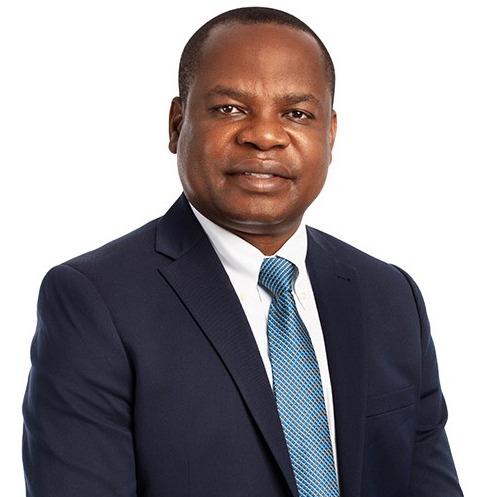Karibu DART

Dkt. Edwin P. Mhede, Phd
Mtendaji Mkuu
Welcome to the website of the Dar Rapid Transit (DART) Agency in order to avail oneself with updates on the implementation of the DART project. The DART project was first conceptualized in 2002 by the Dar es Salaam City Council and was integrated in the transportation system of the city in April 2003 in order to tackle transport challenges that had already affected the residents of the city who used to visit it for one reason or another. One of the challenges that surfaced and continued to slow down the pace of development in social and economic aspects was the escalation of traffic jams which was mainly caused by poor conditions of private commuter buses and the infrastructure that did not allow all road users to enjoy their daily mobility.
In order to make the project sustainable, the government of Tanzania found it imperative to establish an agency which would be mandated to manage the project under the then Prime Minister’s Office Regional Administration and Local Government. Since the Tanzania’s fifth phase government, the DART project is managed under President’s Office Regional Administration and Local Government. The establishment of DART Agency through GN. 120 of May 25, 2007 under Executive Agency Act No. 30 of 1997 its launch on June 16, 2008 prepared the starting point of the DART project which was designed to be implemented in six phases. The implementation of the six phases are mainly divided into two categories, namely, Bus Rapid Transit (BRT) infrastructure development on the existing city main roads of the city and managing of bus operations.
The six phases include:
1)Morogoro Road, Kawawa road north, Msimbazi street, and Kivukoni Front—20.9km
2)Kilwa Road, Kawawa Road South—20.3km
3)Uhuru Street, Nyerere Road, Bibi Titi Road, and Azikiwe Street—24.3km
4)Bagamoyo Road, Sam Nujoma Road—30.1km
5)Mandela Road, New Road1—27.6km
6)Mwai Kibaki Road—26.5km
The six-phase project covers 149.7km.
The implementation of DART project phase 1 started in August 2010 by infrastructure development whose construction was completed in 2015. The DART infrastructure development involved construction of roads, terminals, and depot. The terminals include Kivukoni which is near the Kigamboni Ferry and the fish market, Kimara in the western end of the corridor, and Kariakoo-Gerezani. Another terminal is Morocco which is located at the northern end of Kawawa Road. There are two depots in phase 1, namely, Jangwani and the newly built mini-depot nearby Ubungo terminal.
Since the construction of DART system infrastructure Phase 1 was completed far earlier than the completion of procurement process of the service provider, the government decided to start bus operations under interim service provider as part of safeguarding the newly built infrastructure and serve as an opportunity for the government to test the efficiency of the DART system.
In order to empower the local transport service providers in running BRT system, the government of Tanzania requested the current commuter bus owners to form a company which could run bus operations before the actual service provider has been procured.
`Since May 10, 2016, the DART Agency started bus operations for five days without charging its passengers fares as part of orienting the public in the new system. From May 16, 2016 up to date commuters pay affordable fares between TZS 650 for trunk routes and TZS 400 for feeder routes. Thus, there are two types of buses in the DART system, namely, trunk and feeder buses. An articulated bus carries as many as 120 passengers as feeder bus can carry 50 to 60 passengers at a time.
During transitional service provider, the Agency in August 2021 added 70 buses to the DART system making total of 210 buses from 140. The addition of buses has enabled the Agency to improve the service and create new routes. The new routes that have been created include Magufuli Bus Terminal to Kimara Terminal, Mlongazila Hospital to Kimara, Kibaha to Kimara. Other routes are Mbezi to Kivukoni, Mbezi to Gerezani Kariakoo.
The ongoing BRT infrastructure development of Phase 2 covers 20.3km with two lots of infrastructure development, namely, road works and building works. Lot 2 which deals with building works started in May 2019 and completed the works in August 2021 while Lot 1 which deals with road works is ongoing at 29.43 percent. The road works is planned to be complete by March 2023.
DART Phase 3 covers 24.3km involving construction of dedicated lanes, mixed traffic, walkways, three bus terminals, 32 bus stations, one depot, and three feeder stations. The commencement of infrastructure development for the phase will start once the architectural designs for depot in Gongolamboto and bus station at Julius Kambarage Nyerere International Airport. The designs for BRT infrastructure development for DART Phase 4 started in July 2019 and the draft is already in place. Phases 3 and 4 are financed by the World Bank. Phases 5 and 6 are at different stages of implementation process.
So, welcome once again to the DART system for fast, comfortable, and affordable urban transport.

